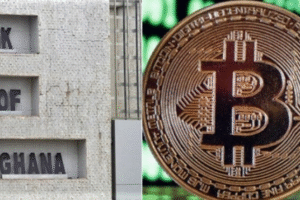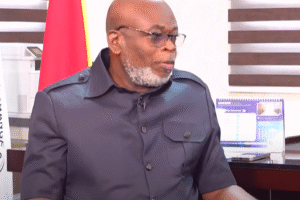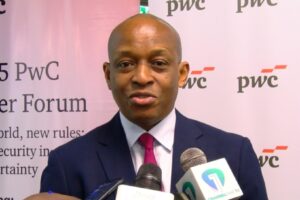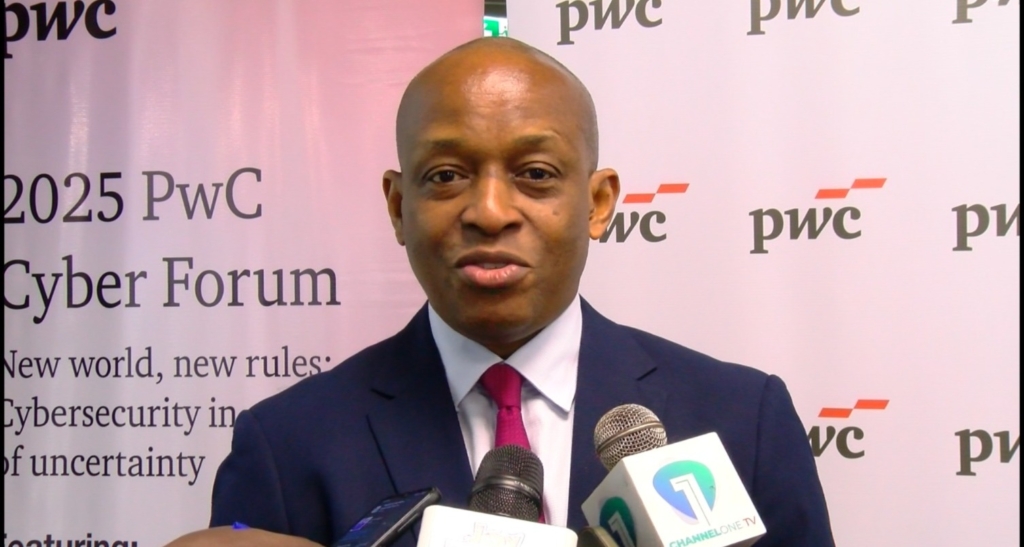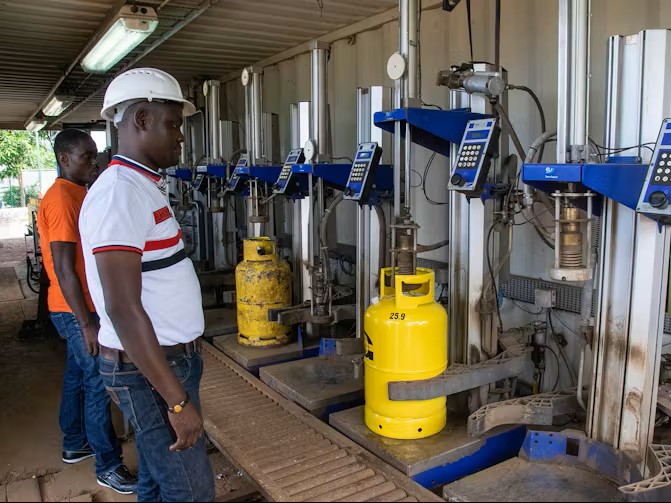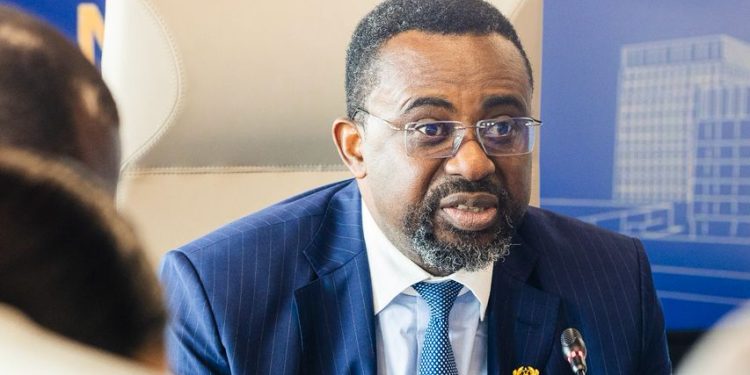Ghana’s macroeconomic stability appears to be strengthening, with inflation trending downward and confidence returning to key sectors, according to Vish Ashiagbor, Country Senior Partner of PwC Ghana.
Speaking at the 2025 PwC Cyber Forum in Accra, Mr. Ashiagbor said the steady decline in inflation to 8 percent demonstrates growing economic stability, improved fiscal discipline, and better coordination between the government’s monetary and fiscal policies.
“The fact that inflation has fallen to 8 percent reflects a stronger macroeconomic framework,” Ashiagbor said. “If we sustain this momentum and build private sector confidence, we could see a more stable price environment.”
He emphasized that maintaining fiscal prudence while supporting productive investment will be essential to sustaining Ghana’s recovery and creating a resilient foundation for private sector growth.
Private Sector Confidence Key to Sustained Recovery
According to PwC Ghana, the private sector’s responsiveness to current stabilization measures is vital. The firm believes that continued improvement in exchange rate management, public debt restructuring, and capital market reforms could further strengthen investor sentiment.
Economists note that Ghana’s path toward single-digit inflation is a significant milestone, particularly following the period of double-digit price surges between 2021 and 2023. The reduction signals renewed confidence in monetary policy, as well as the potential for lower interest rates to stimulate lending and investment in 2026.
However, analysts caution that maintaining this progress will require continued policy coordination between the Ministry of Finance and the Bank of Ghana, especially as the government prepares the 2026 budget amid global economic uncertainties.
Cybersecurity: The Next Frontier of Economic Stability
While economic conditions are stabilizing, experts at the PwC Cyber Forum warned that Ghana’s growing digital economy faces heightened cyber risks that could undermine hard-won gains if left unaddressed.
Divine Selasi Agbeti, Director-General of the National Cyber Security Authority (NCSA), called for stronger collaboration between public institutions and private technology firms to counter rising cyber threats.
“Cybersecurity is not just a government issue — it’s a shared responsibility,” Agbeti said. “Without intelligence sharing and coordinated response, our systems remain exposed.”
He added that fragmented systems and poor inter-agency communication continue to leave Ghana’s businesses and public databases vulnerable to ransomware, phishing, and data breaches.
The NCSA boss urged private companies to integrate cybersecurity protocols into their operations and to invest in employee training and threat monitoring systems, particularly in sectors such as banking, telecom, and energy, which have seen a surge in digital transactions.
Balancing Economic and Digital Stability
Discussions at the forum underscored the critical link between macroeconomic stability and digital resilience, with participants agreeing that the next phase of Ghana’s economic growth will rely heavily on its ability to secure the digital infrastructure that underpins trade, finance, and governance.
PwC Ghana’s leadership emphasized that cyber resilience is now a key component of economic stability — just as fiscal responsibility and monetary control are.
“In today’s interconnected world, no economy can be stable without digital security,” Ashiagbor said. “As we stabilize inflation and strengthen our fiscal framework, we must ensure our digital systems are equally secure.”
The Road Ahead Analyzed by Accra Business News
Ghana’s progress in reducing inflation and stabilizing its currency has earned cautious optimism from both domestic analysts and international observers. However, sustaining this progress will require continued fiscal discipline, prudent borrowing, and an emphasis on digital governance.
The government’s renewed focus on economic resilience, coupled with private sector innovation and enhanced cyber readiness, could help Ghana build a more robust and future-ready economy capable of withstanding global shocks.
As PwC Ghana and the NCSA highlighted, the path to long-term prosperity will depend on how effectively Ghana balances economic stability with technological security — ensuring that its growth in the digital era is both sustainable and protected.
Source: Accra Business News
Disclaimer: Some content on Accra Business News may be aggregated, summarized, or edited from third-party sources for informational purposes. Images and media are used under fair use or royalty-free licenses. Accra Business News, an extension of Accra Street Journal is a subsidiary of SamBoad Publishing Ltd under SamBoad Holdings Ltd, registered in Ghana since 2014.
For concerns or inquiries, please visit our Privacy Policy or Contact Page.
📢 GET FREE JOBS + TIPS
Others are getting instant job updates and career tips on our WhatsApp Channel. Why miss out?
📲 Join SamBoad Jobs Channel Now



